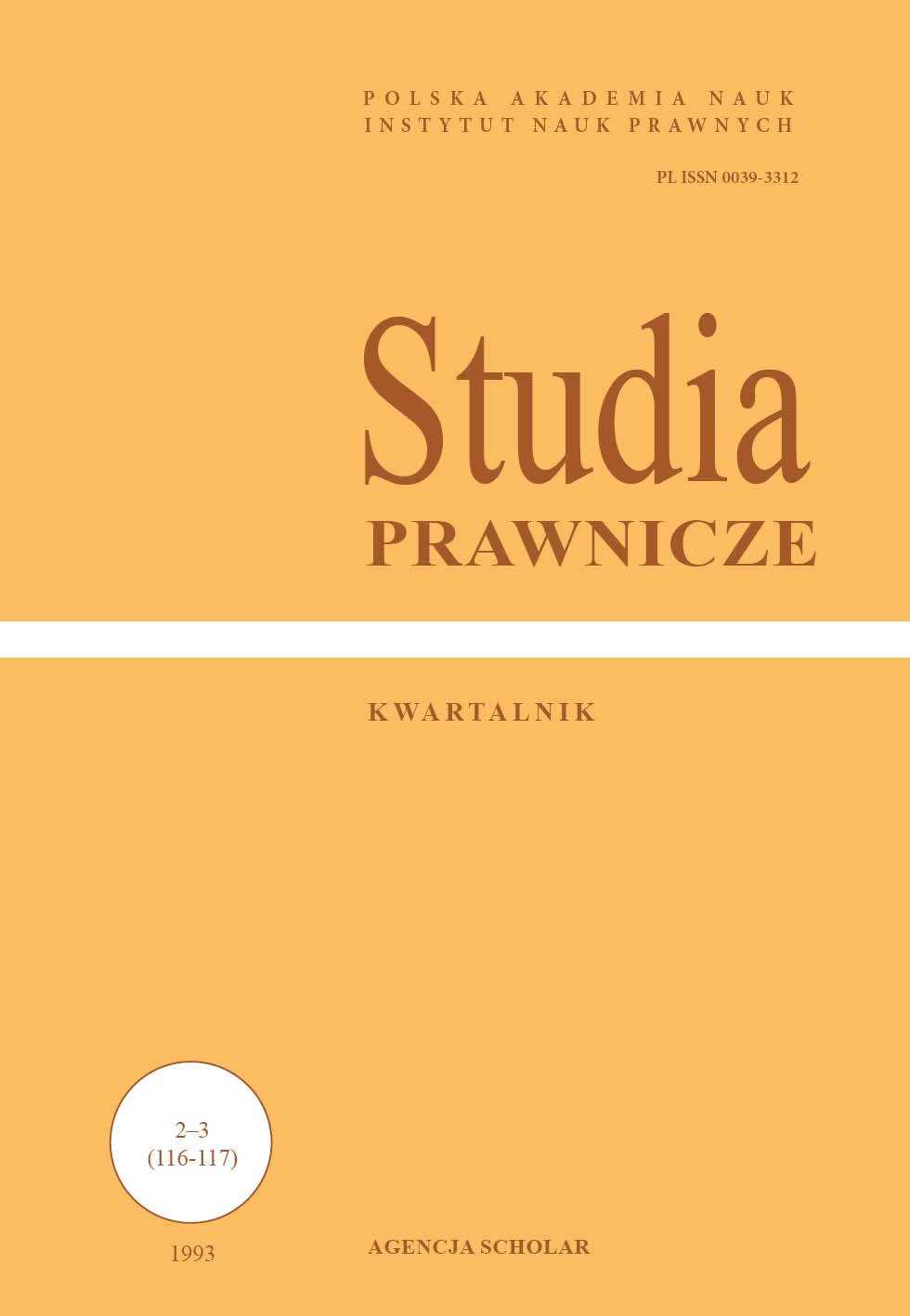Wpływ woli osób bezpośrednio zainteresowanych na powstanie stosunku prawnego rodzice – dzieci w przypadku nienaturalnej prokreacji
Influence of the will of the directly concerned persons on the emergence of a legal relationship between parents and children in the case of non-natural procreation
Author(s): Andrzej DyoniakSubject(s): Law, Constitution, Jurisprudence
Published by: Instytut Nauk Prawnych PAN
Keywords: in vitro fertilisation (IVF); children's rights; parents; identity; regulation by law
Summary/Abstract: The legislator understood biological ties as the term parenthood, but this should only be regarded as a rule, from which exceptions are allowed in justified cases. One of these, introduced systematically by the legislator, is the case of total adoption of a child. The adoptee acquires a new marital status while losing his or her previous one, and irrevocably so. The parent-child relationship is a legal relationship.By consenting to heterologous insemination, a woman and a man are not only consenting to the procedure being performed, but also to its consequences, i.e. the birth of a child. The will of each of the partners is directed towards having said child. The consent for either insemination or embryo implantation is characterised by revocability up to the moment of the procedure: its execution leads to the emergence of a new legal subject.In the case of heterologous insemination, the husband of the mother is considered the father of the child based on the presumption of the child's origin from the marriage (Article 62 § 1 of the Family and Guardianship Code). In those exceptional cases in which, despite having expressed prior consent to the insemination, the husband would subsequently take an action to deny his paternity, the action could not succeed if he only invoked the fact of artificial heterologous insemination. However, the claim should be dismissed, not as the Supreme Court acknowledged in its 1983 resolution, on the grounds that the claim was contradictory to the principles of social co-existence, but on the basis of the father's (social) status acquired by the consent to the insemination. An action intended to deny paternity, brought by other entitled parties in the situation of consent to heterologous insemination by the husband of the father, would have no chance of success. However, if it was proven in a paternity denial trial that the child was not conceived as a result of heterologous artificial insemination, but that the pregnancy was the consequence of natural intercourse with another man, the prerequisites for the acquisition of paternity status by the husband of the mother would not be met, which could lead to paternity denial.While approving the inadmissibility of paternity denial by the husband of the mother in a situation where homologous insemination has been performed without his consent, this ruling should not be explained only, or perhaps primarily, by the fact that the child is genetically related to the husband of the mother. Also in this case, as we are dealing with non-natural procreation with the related impact of the will of the concerned persons on the conception of a child, certain legal consequences should be tied to this will or lack of consent. However, despite the lack of consent to insemination, the husband of the mother should be considered the legal father of the child primarily because of the general assumptions underlying the marriage and the duties of the spouses. They are obliged to co-habit (Article 23 of the Family and Guardianship Code), with the intention to fulfil the procreative function of marriage.The [surrogacy] agreement is invalid as it is contradictory to the rules of social co-existence. It makes the birth of a human being and its transfer to another person the object of such an agreement. A human being treated as an object of an agreement is incompatible with his or her dignity (Article 23 of the Civil Code). The parties to such an agreement also exceed the limitations of a legal commitment, as the legal system does not provide for the possibility of demanding the surrender of a child for adoption. The interested persons, which the parties to a surrogacy agreement are clearly, can impact the formation of the parent-child legal relationship.Since it is inadmissible to establish the origin of a child adopted totally (only genetic origin can be referred to here, since the parents-child legal relationship is established), such a right cannot be granted e.g. to children conceived through artificial methods in the name of the coherence of the legal system and the equality of rights of all children.De lege ferenda, I would be inclined to follow the arguments of the proponents of this law and I would opt for its introduction into Polish law. This law right should not affect the parent-child legal relationship.
Journal: Studia Prawnicze
- Issue Year: 1993
- Issue No: 2-3
- Page Range: 51-71
- Page Count: 21
- Language: Polish

